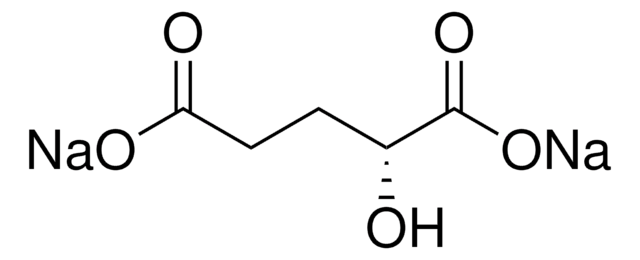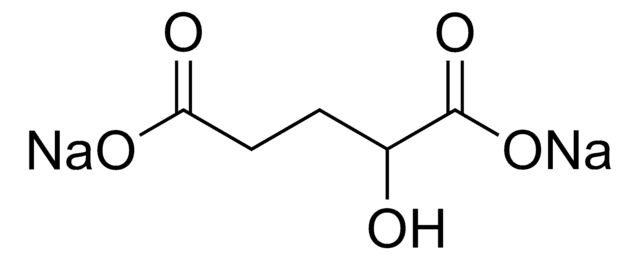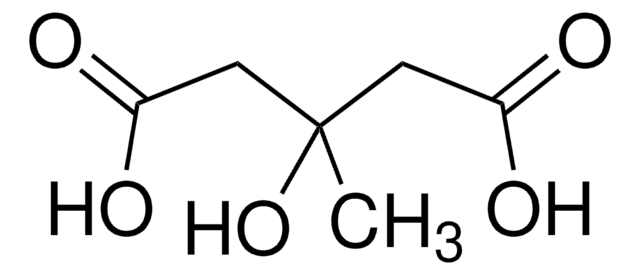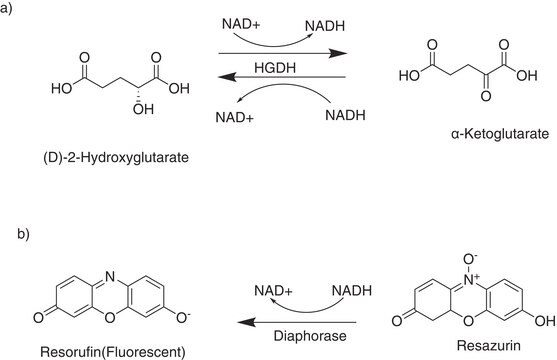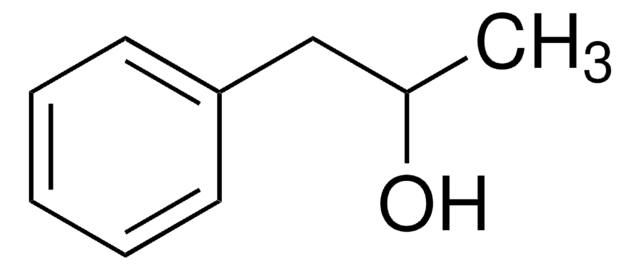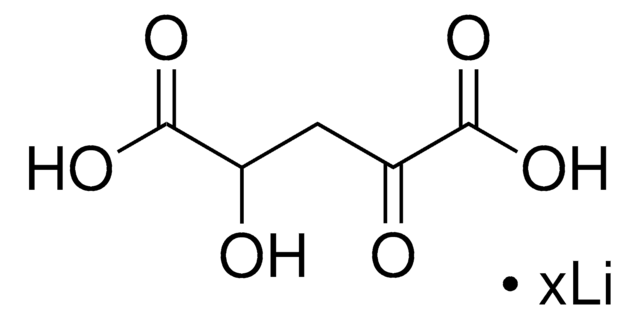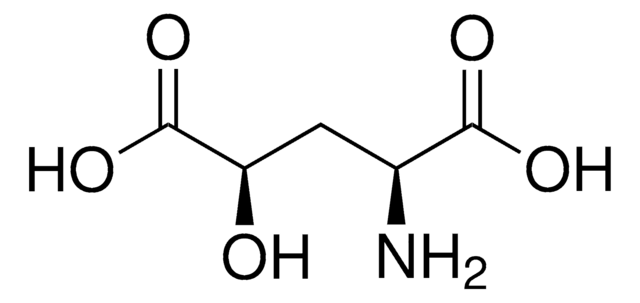90790
L-α-Hydroxyglutaric acid disodium salt
≥98.0% (GC)
Sinónimos:
(S)-2-Hydroxypentanedioic acid disodium salt, Disodium (S)-2-hydroxyglutarate
About This Item
Productos recomendados
assay
≥98.0% (GC)
form
powder or crystals
optical activity
[α]/D -8.5±1.5°, c = 1 in 0.1 M NaOH
impurities
≤6.0% water
relevant disease(s)
cancer
storage temp.
2-8°C
SMILES string
[O-]C(CC[C@@H](C([O-])=O)O)=O.[Na+].[Na+]
InChI
1S/C5H8O5.2Na/c6-3(5(9)10)1-2-4(7)8;;/h3,6H,1-2H2,(H,7,8)(H,9,10);;/q;2*+1/p-2/t3-;;/m0../s1
InChI key
DZHFTEDSQFPDPP-QTNFYWBSSA-L
¿Está buscando productos similares? Visita Guía de comparación de productos
General description
Application
Biochem/physiol Actions
Packaging
Storage Class
11 - Combustible Solids
wgk_germany
WGK 3
flash_point_f
Not applicable
flash_point_c
Not applicable
Elija entre una de las versiones más recientes:
¿Ya tiene este producto?
Encuentre la documentación para los productos que ha comprado recientemente en la Biblioteca de documentos.
Los clientes también vieron
Protocolos
We describe here a rapid and sensitive method to separate and measure D-2-OHG and L-2-OHG enantiomers using high-resolution mass spectrometry (HRMS) detection.
Chromatograms
application for HPLCapplication for HPLCNuestro equipo de científicos tiene experiencia en todas las áreas de investigación: Ciencias de la vida, Ciencia de los materiales, Síntesis química, Cromatografía, Analítica y muchas otras.
Póngase en contacto con el Servicio técnico